Metadata Integration & Data Governance — Portfolio Archive (2005–2020)
A 15-year record of Brian Brewer’s work with InfoLibrarian™ — enterprise metadata software and Fortune 100 consulting.
Enterprise Metadata Integration — Practices & Lessons (2005–2020)
This archive documents 15+ years of InfoLibrarian™ work integrating metadata at scale: controlled vocabularies (taxonomies, thesauri), meta-models, lineage & impact analysis, and standardized integration patterns. The focus is consistent semantics, reliable data movement, and architecture-first delivery across Fortune 100 environments.
Documented approach used during 2005–2020 Portfolio & Case Studies →
Selected engagements and results Company History & Legacy →
About this archive and timeline
When Platform Becomes Prison
By 2020, InfoLibrarian’s legacy, on-prem architecture had become a constraint—costs rose, delivery slowed, and the platform couldn’t match cloud-native, composable ecosystems. We retired it and documented what worked—and what didn’t.
By 2020, InfoLibrarian™ was no longer an active software platform or consulting company. It now forms part of Brian Brewer’s professional portfolio—capturing the frameworks and outcomes from two decades of enterprise metadata work.
Our Legacy Innovations
Engineered Products & Software Interfaces
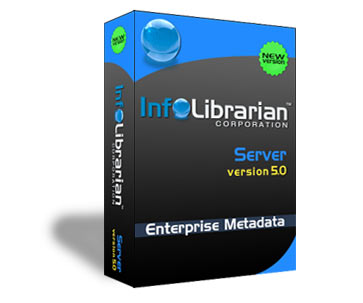
Enterprise metadata integration at scale (2005-2020)
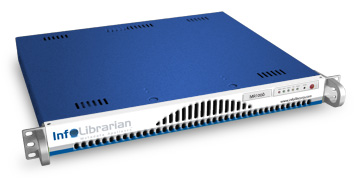
Self-contained, hardware-based solution for quickly deploying enterprise-grade metadata management and governance capabilities.
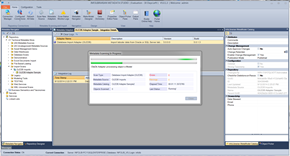
Metadata integration and mapping interface
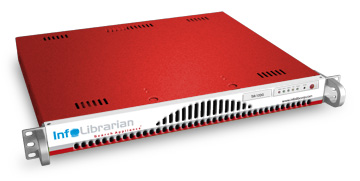
Unstructured semantic search and classification
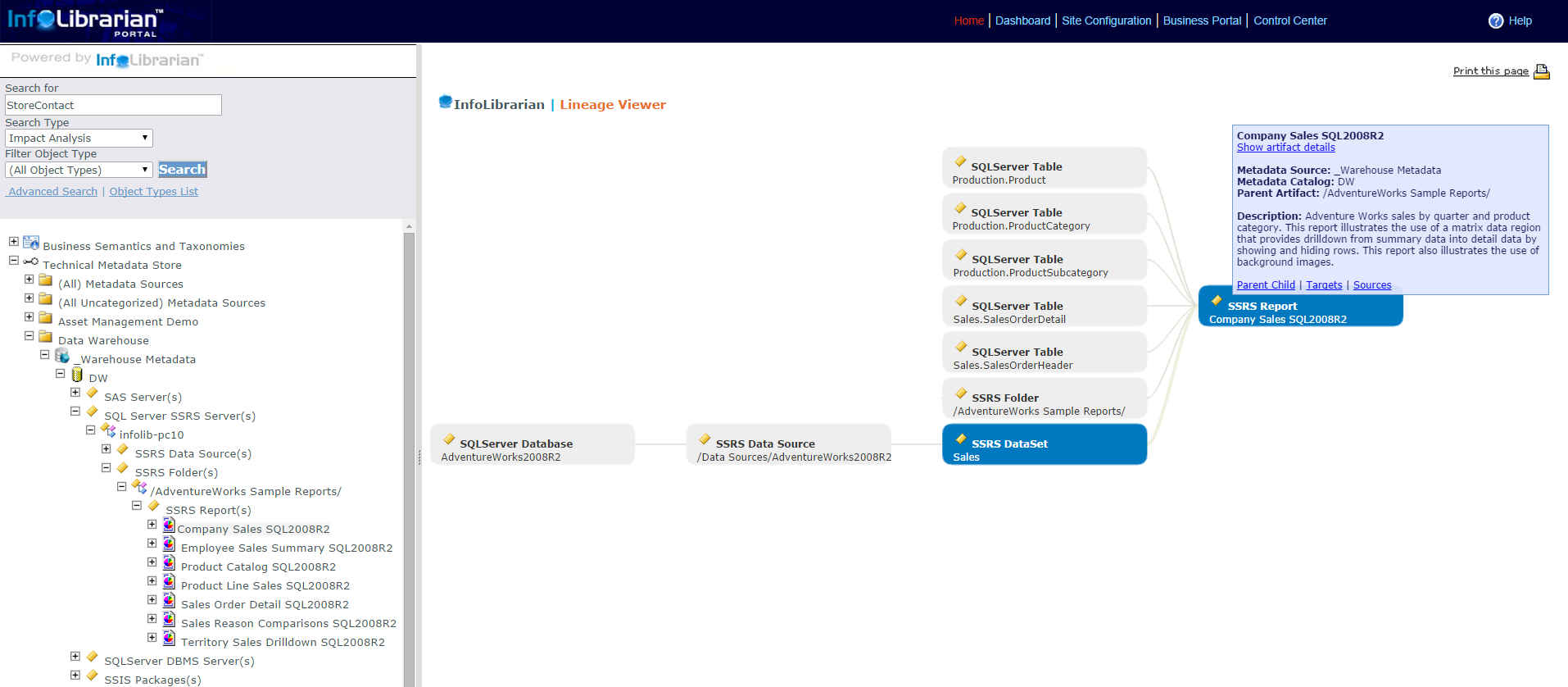
Enterprise portal and self-service marketplace
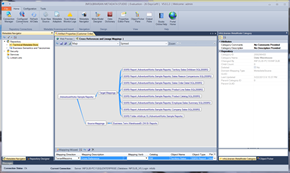
Visual ontology meta-modeling & property graph design studio
The products implemented a semantic & knowledge layer—a property-graph meta-model over relational stores—so enterprises could integrate metadata and enable knowledge management across existing environments.
Metadata Integration Framework™
Its ingestion patterns and sofware capabilities informed playbooks later used in engagements.

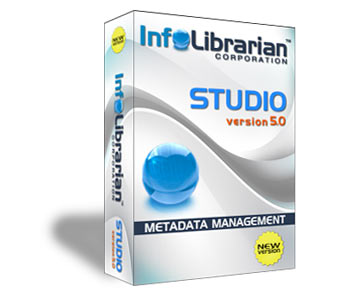 Learn about our Framework (Portfolio) →
Learn about our Framework (Portfolio) →
InfoLibrarian™ Search Appliance (Legacy)
Pioneered federated metadata discovery.
Its discovery capabilities informed our Governance-in-Flow™ consulting and Minimal Viable Metadata methods (historic).

Metadata Appliance™ (Legacy)
A plug-and-play solution for rapid metadata deployment. Its lessons informed our consulting playbooks.

Microsoft Azure Certification & Technology Partner (Historic)
Past Recognition as a metadata server on Azure Marketplace, supporting hybrid governance.
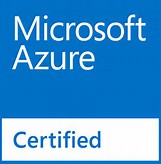
-
Listed on Microsoft Learn’s Synapse Analytics Data Management Partners page — as a metadata server and cataloging partner.
-
Published as Metadata Management Server (Data Catalog) on the Microsoft Azure Marketplace — helping enterprises centralize and govern metadata across hybrid data estates.
-
Integrated with Azure Synapse Analytics, SQL Data Warehouse, and supported hybrid Microsoft architectures long before the Fabric-era metadata ecosystem emerged.
Past Industry Recognition
We built metadata systems, managed tech debt, and escaped legacy platforms. Our Metadata Value Method™ informed our consulting.
IP, Frameworks & Trademarks
Portfolio IP (2005–2020):
- InfoLibrarian™ Metadata Appliance™
- Metadata Integration Framework™
- Metadata Value Method™ (MVM)
Registered & Common Law Trademarks
- InfoLibrarian™ — metadata management software platform
- InfoLibrarian™ — metadata integration framework
- InfoLibrarian™ — Minimal Viable Metadata™ & Metadata Value Method MVM2
- InfoLibrarian™ Metadata Appliance™ — plug-and-play metadata infrastructure solution
- InfoLibrarian™ Metadata Framework™ — modular metadata framework (people, process, tools)
- InfoLibrarian™ Business Intelligent Metadata™ — glossary, taxonomy, and semantics governance
- InfoLibrarian™ Unified Metadata Fabric™ — framework for metadata governance, semantics and discovery
- InfoLibrarian™ Metadata Adapters™ — adapters that integrate metadata for discovery, mapping and classification
















Trademark Notice
InfoLibrarian™, the InfoLibrarian logo, and product names are trademarks or registered trademarks of Brian Brewer. All other product names, logos, and brands are the property of their respective owners.
Patent & Licensing Notices
The InfoLibrarian™ platform and its components may be protected by U.S. and international patents, trademarks or pending applications. Usage is governed by applicable software licensing agreements.
Unauthorized use of InfoLibrarian trademarks, software, or intellectual property is strictly prohibited.
📰 News & Press Archive
📚 View Full News Archive & Press History (2004–2020)
📜 View News Archive & Historic Releases
- 2015-06-01: InfoLibrarian Server Azure Certified — cloud deployment verified.
- 2015-01-30: Hadoop Adapter Released — big data ingestion support.
- 2014-11-17: Server 5.1.4 + Team Edition with bundled metadata adapters.
- 2014-09-15: Free Evaluation & Server 5.1.3 productivity upgrade.
- 2013-06-15: Framework 4.1.2 R2 performance and .NET API updates.
- 2010-06-24: Portal Framework enhanced for metadata services in the cloud.
- 2005-05-05: Metadata Integration Appliance debuted at DAMA Conference.
- 2009-01-26: Framework 4.1.2 released — taxonomy and multi-mart support.
- 2008-06-01: .NET Extension Library released for custom integration.
- 2007-01-01: InfoLibrarian Enterprise Server 4.1 launched.
📰 Press Releases & Major Announcements
Feb 2020 - InfoLibrarian Corporation Certifies New Data Catalog and Metadata Management Solution on Microsoft Azure
As a Microsoft Azure Certified application, enterprise customers can easily find, purchase and deploy InfoLibrarian from the Azure Marketplace. Customers can use Azure Certified Solutions with confidence knowing they have been thoroughly vetted by Microsoft and the publisher for compatibility with Microsoft Azure. InfoLibrarian Expands it certified consulting support on Microsoft Big Data and Data Science platforms.
Jun 01 2015 - InfoLibrarian Corporation Certifies Metadata Management Server Software on Microsoft Azure
As a Microsoft Azure Certified application, enterprise customers can easily find, purchase and deploy InfoLibrarian Server from the Azure Marketplace. Customers can use Azure Certified Solutions with confidence knowing they have been thoroughly vetted by Microsoft and the publisher for compatibility with Microsoft Azure.
Feb 15 2020 - InfoLibrarian Updates Service Offerings
Metadata practices are gaining momentum as companies tackle 'big data'. InfoLibrarian now supports Apache Hadoop Implementations.
Nov 17 2014 - InfoLibrarian Releases Upgrade Server 5.1.4 Update
InfoLibrarian releases the InfoLibrarian Server 5.1.4 upgrade, includes Team Edition package, free evaluation and 6 bundled metadata adapters. InfoLibrarian solves the key problem of finding information and documentation within complex IT environments. InfoLibrarian tools enable companies to perform impact analysis and search of data assets. The new release also includes the introduction of a Team Edition productivity package. The Team Edition allows companies to begin leveraging their metadata and documentation immediately. The Team Edition is a full featured, budget friendly quick start option.
Jan 30 2015 - InfoLibrarian Releases Hadoop Adapter For Big Data
Metadata practices are gaining momentum as companies tackle 'big data'. InfoLibrarian now supports Apache Hadoop Implementations.
Sept 15 2014 - InfoLibrarian Releases Upgrade Server 5.1.3 and Introduces Team Edition Package
InfoLibrarian releases the InfoLibrarian Server 5.1.3 upgrade, introduces the Team Edition package as well as a free evaluation version. InfoLibrarian solves the key problem of finding information and documentation within complex IT environments. InfoLibrarian tools enable companies to perform impact analysis and search of data assets. The new release also includes the introduction of a Team Edition productivity package. The Team Edition allows companies to begin leveraging their metadata and documentation immediately. The Team Edition is a full featured, budget friendly quick start option.
Sept 12 2014 - Document Databases and Applications Metadata
InfoLibrarian releases a standard adapter pack to be included with all versions of our products. The adapter pack will enable ingest of metadata from over 300 source tools and applications. Included in the package are adapters for Microsoft SQL Server (complete stack), Oracle, Excel, Databases, XML or CWM-XMI and Web Services. By including this rich set of adapters, companies can onboard their key metadata and documentation right away, delivering a feature rich impact analysis and search portal to the user communities in days.
June 2014 - InfoLibrarian Releases Upgrade to InfoLibrarian Studio 5.1.2
InfoLibrarian releases new InfoLibrarian Studio 5.1.2. InfoLibrarian Studio replaces the current InfoLibrarian Administrator tool. Rich new features include UI enhancements and improvements.
Jan 2014 - InfoLibrarian Releases Major Upgrade InfoLibrarian Studio 5
InfoLibrarian releases new InfoLibrarian Studio 5.1.1. InfoLibrarian Studio replaces the current InfoLibrarian Administrator™ tool. Rich new features include drag and drop mappings, taxonomy management and a developer studio style interface.
JUN3 2013 - InfoLibrarian 4.1.2 R2 New Build Released
InfoLibrarian Releases Update (061513) for the 4.1.2R2 Server version of the product. InfoLibrarian 4.1.2R2 includes package enhancements, .NET API enhancements, performance enhancements and product fixes and improvements.
August 2012 - InfoLibrarian 4.1.2 R2 Released
InfoLibrarian Releases major version upgrade for the 4.xx version of the products. InfoLibrarian 4.1.2R2 includes package enhancements, not limited to InfoLibrarian Studio™ and InfoLibrarian Server 4.1.2R2™. Other enhancements include, .NET API enhancements, Performance enhancements and product fixes and improvements.
Summer 2012 - InfoLibrarian Global Partnering Initiative
InfoLibrarian™ set the stage for a Global Eco Management Partnering Reciprocal and is building on that philosophy to engage at any level of business development now and in the future. With our Eco Management Partnering program, InfoLibrarian™ has the capability beyond size alone and can muster super global resources when and where needed.
June 2011 - InfoLibrarian™ 4.1.2 Released
InfoLibrarian™ Releases major version upgrade for the 4.xx version of the products.
February 2010 - InfoLibrarian™ Makes Metadata Management Cloud and Web Services Enabled
The InfoLibrarian Portal Framework™ is a set of components that work together to meet the Metadata management and analysis needs of the largest enterprise data processing systems. InfoLibrarian™ can manage your metadata and make it available via services in the Cloud. Now available publication of a central metadata registry via web services. These metadata services present metadata to be consumed by third party applications.
April 2009 - InfoLibrarian™ Desktop Express Released
InfoLibrarian Metadata Framework™ Desktop Express is designed to help small and medium sized business to begin to manage metadata without the requirement to purchase a full-blown Enterprise Solution. InfoLibrarian™ Desktop is the ideal way to get started today with your POC's, pilot projects or for existing projects that can benefit from metadata management. InfoLibrarian™ Desktop includes the InfoLibrarian Repository™, Desktop Tools, InfoLibrarian Framework™, comprehensive documentation and a stand-alone version of the InfoLibrarian Portal™ which requires no third party web server
June 2008 - InfoLibrarian™ .NET Extension Library
We are proud to announce the availability of InfoLibrarian™ 4.1 Enterprise .NET Extension Library. The Dot NET Extension Library allows organizations wishing to develop framework add-ons, portal enhancements and custom scanners exclusively via a .NET C# API with any of the .NET programming languages including VB.NET, ASP.NET and C#.net. The Extension Library enhances the classic API interfaces with interfaces developed in C# .NET.
January 2008 - InfoLibrarian™ Featured in the Gavilan Metadata Research Report
InfoLibrarian™ Participates in the Galivan Research Associates "Metadata Solutions Report™" Gavilan Research Associates (GRA) is an expert consulting firm that helps companies to evaluate and select enterprise technology solutions. GRA is the world's foremost authority on metadata management applications and vendor/product research. GRA is objective and vendor-neutral.
January 2007 - InfoLibrarian™ 4.1 Enterprise Server Release R2
We are proud to announce the release of InfoLibrarian™ 4.1 Enterprise Server. The world's premier metadata integration framework. InfoLibrarian™ has evolved since 1998 to be the industry's most robust, open, and cost effective metadata integration solution. InfoLibrarian 4.1 Enterprise Server™ release features change management and contribution portals to help organizations to achieve governance of their information assets. New features include interactive lineage and workflow analysis as well as point and click configurable portal perspectives to enable companies to rapidly deploy and adapt InfoLibrarian™ to manage their information assets.
February 2006 - InfoLibrarian Corporation™ Featured on National Television Press
InfoLibrarian Corporation™ featured on national television NBC News, NBC Today as a Better Business Bureau "Company you can Trust" and that customers are in good hands with us.
October 2005 - InfoLibrarian Search Appliance™ Announced
Enterprise-Wide Secure Search for Unstructured Metadata. Index and search up to 10 million items, anywhere documents and data can be found. The InfoLibrarian Search Appliance™ is ready to go, just plug it into your network and setup indexing of files, databases and web sites. Almost instantly, you can begin searching. It's Fast ... Powerful and Easy!
October 2005 - The Data Administration Newsletter (TDAN)
InfoLibrarian™ mentioned among top Software companies in what the author calls "The Metadata Renaissance"
21-September 2005 - InfoLibrarian™ Presentation with New York State
The New York State Office of the CIO has defined and issued the Principles Governing The New York State Information Technology Enterprise Architecture to support the business and program priorities of the state. The foundation of this multi-tiered architecture is the Information Layer that will facilitate information sharing across the enterprise through data standardization and integration. A prerequisite of this initiative is to ensure the accuracy of the information within the database - a complex challenge that CIO's and database administrators have encountered for decades. This presentation detailed the progression of techniques employed to accomplish this task, and the application of emerging technologies in New York State.
May 2005 - 9th Annual Wilshire Meta-Data Conference
InfoLibrarian Corporation™ showcased the InfoLibrarian Framework™ and the worlds first Metadata Integration Appliance™ at the 9th annual Wilshire Meta-Data Conference and the 17TH annual DAMA International Symposium. May 22-26, 2005 • Renaissance Orlando Resort at Seaworld • Orlando, Florida USA. The World's Largest Vendor-Neutral Data Management Conference
May 2005 - InfoLibrarian Metadata Integration Appliance™ Announced
We are proud to announce the release of the world's first and only Metadata Integration Appliance™.
March 31 2005 - InfoLibrarian Metadata Integration Framework™ 4.0 Released
We are proud to announce the release of InfoLibrarian™ 4.0. The world's premier Metadata Integration Framework. InfoLibrarian™ has evolved since 1998 to be the industry's most robust, open, and cost effective Metadata integration solution.
April 19 2005 - InfoLibrarian™ Featured in the Gavilan Metadata Research Report
InfoLibrarian™ Participates in the Galivan Research Associates "Metadata Solutions Report™" Gavilan Research Associates (GRA) is an expert consulting firm that helps companies to evaluate and select enterprise technology solutions. GRA is the world's foremost authority on metadata management applications and vendor/product research. GRA is objective and vendor-neutral.
December 07 2004 - InfoLibrarian™ Featured in the Gavilan Metadata Research Report
InfoLibrarian™ Participates in the Galivan Research Associates "Metadata Solutions Report™" Gavilan Research Associates (GRA) is an expert consulting firm that helps companies to evaluate and select enterprise technology solutions. GRA is the world's foremost authority on metadata management applications and vendor/product research. GRA is objective and vendor-neutral.
October 15 2004 - METADATA SYMPOSIUM 2004 NEW YORK CITY
At the The Data Management Forum METADATA SYMPOSIUM 2004, NEW YORK CITY. InfoLibrarian™ showcased the InfoLibrarian Universal MetaMart™ and InfoLibrarian Portal™ solution.
June 07 2004 - WAREHOUSE CONFERENCE 2004 WASHINGTON DC
InfoLibrarian™ CTO Brian Brewer presented "Solutions Architectures for Metadata Management. An exploration of metadata technologies and standards." The presentation provided and overview of the various existing technologies used to solve the metadata management problem, their strengths and limitations. It Explored emerging standards, and demonstrated a proven framework for integrating a comprehensive real world solution utilizing the InfoLibrarian MetaMart™
September 24 2003 - METADATA SYMPOSIUM 2003, NEW YORK CITY
InfoLibrarian™ 3.0 showcased at the The Data Management Forum METADATA SYMPOSIUM 2003, NEW YORK CITY.

